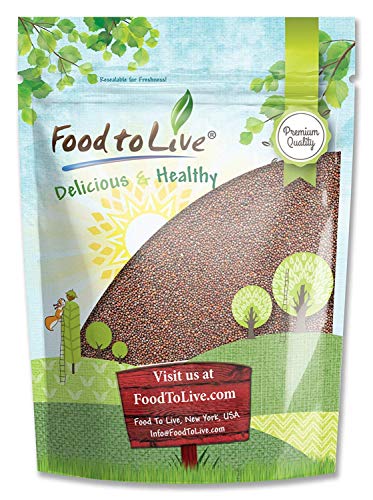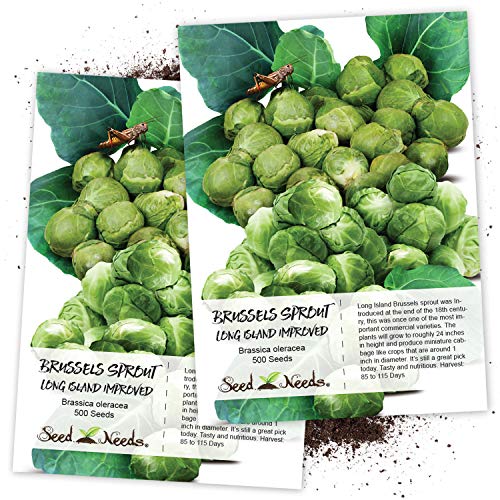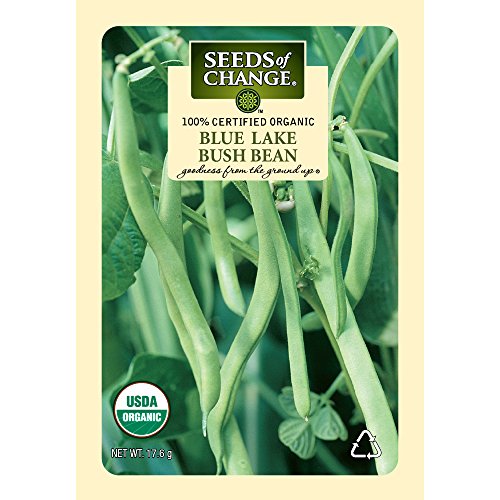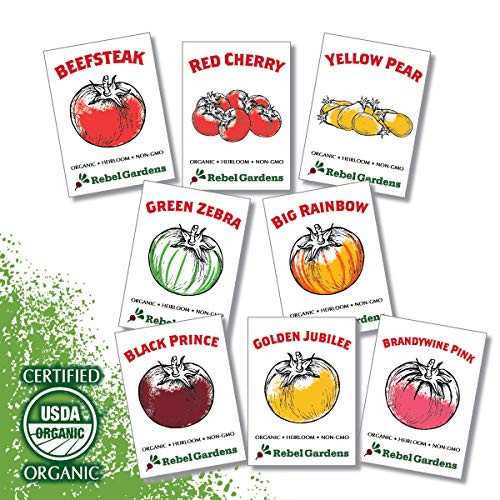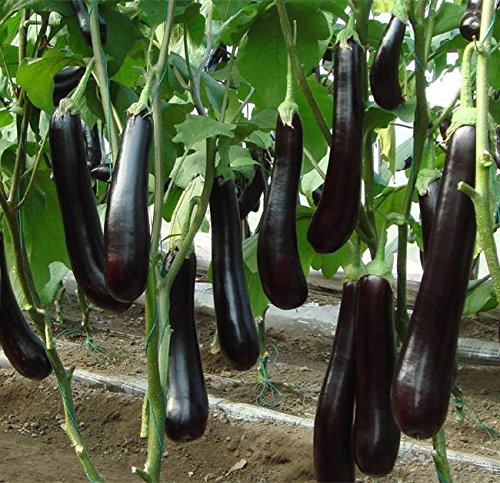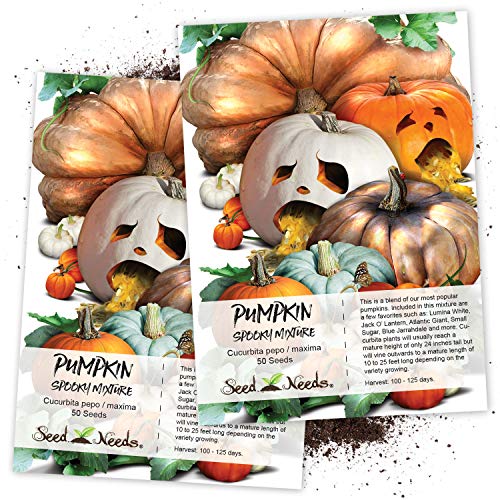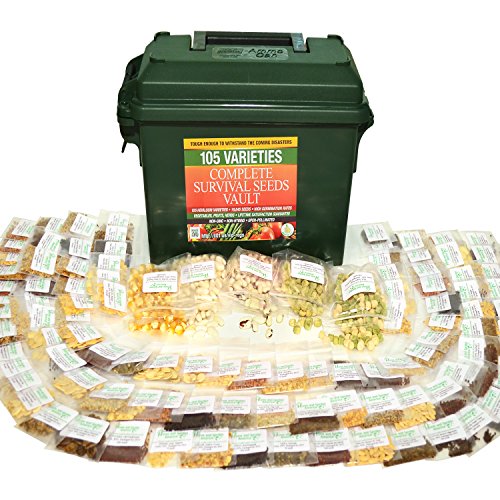Farm Seeds Near Me – What vegetables grow well in the garden 2023 ?
Finding a good seed bank online or in your area is vital if you are going to put your farming skills to the test. We highly recommend checking out the ‘farm seeds near me’ tool below to find a local store selling the best farm seed near you. It’s always worth finding a good store where you can pick up more tips on how to make the most out of your garden and to get all the tools you need for bigger and better harvests.
Why grow your own vegetables?
Whilst it seems to get easier and easier to get whatever fruit and vegetables you want year-round, growing your own comes with a whole host of benefits. For one, the produce you grow yourself is going to be more nutritious than those items that have had to travel thousands of miles to make it into your local store. You can also be confident of how organic your own growing techniques have been and save money by reducing the amount of produce you need to buy at the superstore.
Other great things about growing your own produce are that:
- It gets you outdoors and helps you to better understand nature as you learn how things grow and to improve their yields.
- Doing your own gardening helps get you active so is good for your heart and tackling any unwanted pounds put on over the winter months.
- Gardening can be great for your mental well-being and can help you appreciate your food more knowing that you had a hand in its production.
- Although gardening itself is a hobby, it can also introduce to a whole new world of hobbies such as botany, nutrition or even taking your produce to the local farmers market.
- If you have children, getting them involved in growing their own can make it a whole lot easier to get them to eat the fruit and veg they usually turn their noses up at.
How do I choose farm seeds?
So what about those questions? How do you understand the differences between F1, Hybrid, Open Pollinated, Heirloom, Heritage, Organic, AAS, AGM….and any other label you might find on a seed packet? Well, the key thing to remember is that there are really only 3 types of seed and many of the other labels are variants of these, re-branding themselves as something different. Here are the 3 major types and what they mean:
Seed Type 1: Open-Pollinated
This refers to seeds pollinated by things like birds, insects, wind or even you, but is generally naturally occurring. Heirloom seeds are always open-pollinated (although open-pollinated seeds are not always heirloom seeds) and will look and respond to treatment just as their parent plant would do. This means you can trust the flavors you produce each time in your favorite recipe will remain just as good with each new season.
Can these be saved?
Yes
Seed Type 2 – Hybrids
These seeds are usually labeled ‘F1’ and are usually a cross between 2 plants which have been intentionally cross-pollinated by humans. However, you can get hybrids which have been open-pollinated by accident in nature too. Hybrids have made it easier for humans to control and predict how food will grow, make it tastier and have bigger yields and is a technique used over hundreds of years. You can do it yourself by using a paintbrush to pass over pollen from one plant to another.
Can these be saved?
Yes but they will be very unpredictable and are unlikely to be true-to-type
Seed Type 3 – GMOs/BE
This type refers to ‘genetically modified organisms’, more recently re-branded as ‘bio-engineered’ seeds. These seeds cannot happen naturally, and use high-tech splicing techniques such as gene-splicing in a lab where the plant’s DNA itself is altered. GMOs can use genes from different species and are often designed to make the plant produce pesticides. If you’re just growing seeds in your garden, you want to avoid these seeds.
Can these be saved?
Yes, but you won’t be planting them anyway!
What do the Organic and AAS labels mean?
Organic simply means seeds which are from a parent plant which met the organic requirements of a specific region and cannot be from GMO’s. You can grow pretty much organic from conventional seeds, but it could not be certified as organic. AAS tests new seed strains and promotes those that perform the best in their testing program.
What vegetables grow well in the garden?
So now you know a bit about seed types and labeling, but what produce should you plant in your garden? Here are 5 of our favorite seeds that are easy to grow in the backyard in the spring and fall:
#1 Best Broccoli Seeds: Broccoli Seeds for Sprouting by Food to Live
High in calcium, magnesium, and iron, as well as the vitamins A, B6, and C, broccoli is full of beneficial minerals and vitamins that will help keep you healthy. These seeds are viable for up to 5 years when kept dry and have a great germination success rate. Just watch out for white butterflies flapping around your broccoli as this is a sign of so-called ‘cabbage-worm’, which are little green worms that you will need to pick off. You’ll need soil to be about 16 inches deep to grow these well.
#2 Best Cabbage Seeds: 100 Cabbage Seeds, Filderkraut Hillmar an Heirloom pointed cabbage
These heirloom cabbage seeds produce tasty cabbages which form in an impressive pointy shape. As these seeds are heirloom they will be true-to-type so if you like one, you’ll like them all. These grow best in cooler weather so should be planted indoors for 5-7 weeks, before the last spring frost, then planted outdoors to harden them off. Watch out, as cabbage does attract pests to the garden.
#3 Best Garden Greens Seeds: Organic Garden Greens Vegetable Seeds – 8 Varieties
These mixed seeds include spinach, salad, chard, and Kale and are all organic, non-GMO and heirloom so each one will taste as good as the last. These seeds work great whether you are growing in planters, raised beds, or straight in the ground. The spinach and kale, in particular, do well in colder weather and you can save the lettuce for the spring and summer. With great germination rates, these seeds don’t require you to be a master gardener to enjoy a great harvest.
#4 Best Leeks Seeds: Heirloom Leeks Seed, Organically Grown, Open Pollinated
This member of the onion family looks like a large spring onion, are nice and easy to grow, and can be grown in the spring and into the fall too as they can cope with the cold. Grow them in trays for 4-6 weeks before sowing outdoors 10-20cm apart. They’ll be ready for harvest after 15-18 weeks when they will look like large blades of grass above the surface. These seeds are organically grown and open-pollinated.
#5 Best Brussels Sprouts Seeds: Brussels Sprout Long Island Improved (Brassica oleracea)
Rich in vitamin C and many of the B vitamins sprouts should not only be brought out for Christmas dinner as they are so good for us and packed full of flavor. These great seeds are non-GMO and will last for at least 2 growing seasons. You’ll love watching these grow into towers up to around 25-inches tall covered in what look like mini cabbages. It’ll take around 15 weeks for them to be ready for harvest. Make sure to leave them on the stem as you’ll have more sprouts than you’ll know what to do with and this will help keep them fresh for longer. Now, time to look up some inventive recipes for sprouts!
And here are 5 of our favorite seeds that are easy to grow for the summer:
#6 Best Bean Seeds: Seeds of Change Certified Organic Blue Lake Bush Bean
These bean seeds are organic and taste great whether you plant them in pots or free and easy out in your gardening patch. These moisture proof packets also mean you can keep these seeds safe for up to 5 years and still see good germination success rates. This great company is focused on improving bio-diversity too so you can buy these seeds safe in the knowledge you’re helping improve the global landscape for the vital insect life that keeps us alive.
#7 Best Tomato Seeds: Heirloom Tomato Seeds – 8 Varieties of Seed
Let’s face it, when thinking about getting into gardening, one of the most exciting things to grow is normally the tomato. These seeds from Rebel Gardens take that excitement to another level by providing 8 different strains which grow in wild and wacky shapes, sizes and colors. The green zebra is a personal favorite and these tomatoes are a sure fire way to get the kids interested in helping on the gardening patch and eating up the goodness they’ve grown with their own hands.
#8 Best Eggplant Seeds: Massive Black Beauty Eggplant 200 Seeds
The eggplant may not be everyone’s cup of tea, but for those that like them, it’s normally more of a passion. That’s what make these particular seeds so good as the eggplants they produce are ginormous in size that are also quite comical in length. The downside of these seeds and aubergines in general is that they need a really warm climate, lots of moisture in the soil and a serious amount of nutrition in that soil too. However, if you grow these successfully they will be quite the party piece at any dinner party.
#9 Best Pumpkin Seeds: Seed Needs, Spooky Pumpkin Mixture
One of the best things about growing your own veg is that you get to try a wider variety of vegetables then you would be able to buy down in your local store. This variety pack of pumpkin seeds is also great for that and all grow into good sizes to make the perfect Halloween pumpkin sculpture, and a pumpkin soup finished off with a sweet and tasty pumpkin pie. They take a while to be ready for harvest mind, so make sure you plant the seeds in time, mid-to-late June should be fine.
#10 Best Seed Kit: Heritage Survival Seed Vault 25 Year Storage Life.
If you’re looking for something a bit different, then this amazing kit comes with over 105 different seed strains, all with an 85% germination success rate and a 25-year storage life. They even come with a lifetime, money-back guarantee offer so you can try them risk-free. If you’ve got plenty of space and passion and want to try growing everything from watermelons to turnips and everything in between, this is what you need. These seeds could certainly help you turn your lifestyle into a fully self-sustaining one so why not go all out?
Conclusion
So there you have it, understanding seeds is easy and there is a whole world of options out there both in store and online. Now all you need to do is go and sow the seeds of your favorite fruit and veg, get in touch with nature, and you’ll be eating the tastiest meals of your life in no time with the best home-grown produce from your own hands.
touch with nature, and you’ll be eating the tastiest meals of your life in no time with the best home-grown produce from your own hands.

